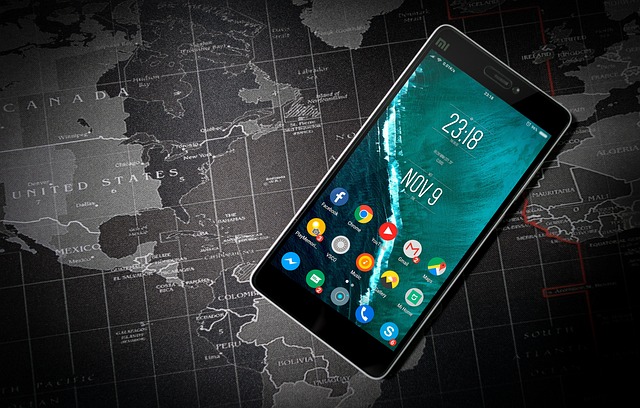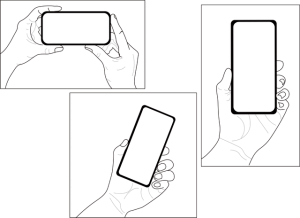Robocalls in North Carolina are regulated by state and federal laws to protect residents from fraudulent or unwanted marketing calls. Businesses must adhere to strict guidelines, including obtaining explicit consent before making automated calls. Victims of illegal robocalls can seek guidance from a specialized robocall lawyer or robocall attorney who understands consumer protection laws. Documenting robocall incidents and consulting with legal experts are crucial steps for taking action against violators and securing peace of mind from intrusive phone calls.
In the digital age, robocalls have become a pervasive and often unwanted intrusion. Understanding the legal consequences of these automated phone calls is crucial for residents of North Carolina. This article explores the regulations surrounding robocalls in NC, from the protections offered by state laws to the potential illegal activities that can arise. We delve into the role of a robocall lawyer in North Carolina, guiding you through your rights and remedies. Learn how to navigate these legal consequences and what steps to take if you’ve received an unwanted robocall. Contact a robocall attorney or law firm in NC for expert assistance.
What Are Robocalls and How Are They Regulated in North Carolina?
Robocalls, automated phone calls that deliver recorded messages to multiple recipients, have become a pervasive issue across the country, including North Carolina. While many robocalls are legitimate marketing efforts, others can be fraudulent or unwanted, leading to significant consumer confusion and frustration. In response to this growing concern, North Carolina has implemented regulations to protect its residents from abusive robocall practices.
In North Carolina, the regulation of robocalls falls under the purview of the North Carolina Department of Justice (DOJ) and the Federal Communications Commission (FCC). The state’s law firmly establishes guidelines for businesses engaged in telemarketing activities, including restrictions on automated calls to individuals who have not given explicit consent. A robocall lawyer or attorney in North Carolina can guide victims through these legal complexities, helping them understand their rights and take appropriate action against violators. Reputable robocall law firms in North Carolina are well-equipped to handle such cases, offering expertise in consumer protection laws and ensuring that individuals receive the justice they deserve for unwanted or fraudulent robocalls.
Legal Protections Against Unwanted Robocalls in NC
In North Carolina, there are robust legal protections in place to safeguard residents from unwanted robocalls. The Telephone Consumer Protection Act (TCPA) is a federal law that restricts automated telephone marketing calls, including robocalls, and provides consumers with valuable remedies when their rights are violated. NC residents can take action against companies or individuals who make unsolicited robocalls by filing a complaint with the Federal Communications Commission (FCC). Moreover, state laws in North Carolina offer additional protections, ensuring that residents can enjoy peace of mind from intrusive and harassing phone calls.
Individuals seeking relief for excessive or illegal robocalls can consult with a robocall lawyer or robocall attorney in North Carolina. A reputable robocall law firm in NC can provide guidance on navigating the legal process, negotiating settlements, or representing you in court if necessary. Many robocall lawyers and firms specialize in consumer protection cases, making them well-equipped to handle disputes related to unwanted automated calls.
When Does a Robocall Cross the Line into Illegal Territory?
In North Carolina, like many states, robocalls have become a prevalent form of communication, often used for marketing and political purposes. However, when these automated calls veer into unwanted or deceptive territory, they can cross the line into illegal activity. A robocall might be considered unlawful if it fails to provide an option to opt-out, known as the National Do Not Call Registry, or if it misrepresents the identity of the caller, a practice often referred to as “spoofing.” Additionally, making calls to numbers on the registry or targeting individuals who have explicitly expressed disinterest in receiving such calls are also prohibited.
Robocall laws are designed to protect consumers from intrusive and deceptive practices. In North Carolina, those found guilty of violating these regulations can face significant legal consequences. Individuals who believe they’ve been victims of illegal robocalls should consider consulting a robocall lawyer North Carolina, or contacting a reputable robocall law firm North Carolina for guidance on pursuing potential legal remedies. Engaging the services of an experienced robocall attorney North Carolina can help navigate these complex issues and ensure the rights of consumers are protected.
The Role of a Robocall Lawyer in North Carolina: Your Rights and Remedies
In North Carolina, as in many states, the proliferation of robocalls has led to a growing need for legal expertise focused on this specific issue. A robocall lawyer in North Carolina is specialized in navigating the complex web of laws and regulations surrounding automated telephone marketing. These attorneys are equipped to protect your rights as a consumer, ensuring that businesses comply with state and federal rules regarding robocalls. If you’ve received unwanted or unauthorized robocalls, a robocall attorney North Carolina can provide guidance on your legal options, which may include seeking damages for harassment, invasion of privacy, or other violations.
Robocall law firms North Carolina often employ strategic litigation and negotiation tactics to help clients resolve issues efficiently. They stay abreast of changing legislation and technological advancements in the field, enabling them to offer tailored advice. By engaging a robocall lawyer North Carolina, you gain an ally who can represent your interests, negotiate with call centers or telemarketers, and, if necessary, file legal actions to stop recurring violations. This proactive approach safeguards your privacy and ensures compliance with consumer protection laws in the state.
Navigating the Legal Consequences: Steps to Take After Receiving an Unwanted Robocall
After receiving an unwanted robocall in North Carolina, the first step is to document the call. Save any voicemail messages or recordings as evidence. Note down important details such as the caller’s phone number, the date and time of the call, and a summary of what was said. This information will be crucial if you decide to take legal action.
Next, consider your options legally. If the robocall violated North Carolina’s Telephone Consumer Protection Act (TCPA), you may have grounds for a lawsuit. Contacting a robocall lawyer or attorney in North Carolina who specializes in such cases is advisable. They can guide you through the process, help you understand your rights, and represent you if necessary to seek compensation or block future calls. Don’t hesitate to reach out to a reputable robocall law firm in NC for assistance.






